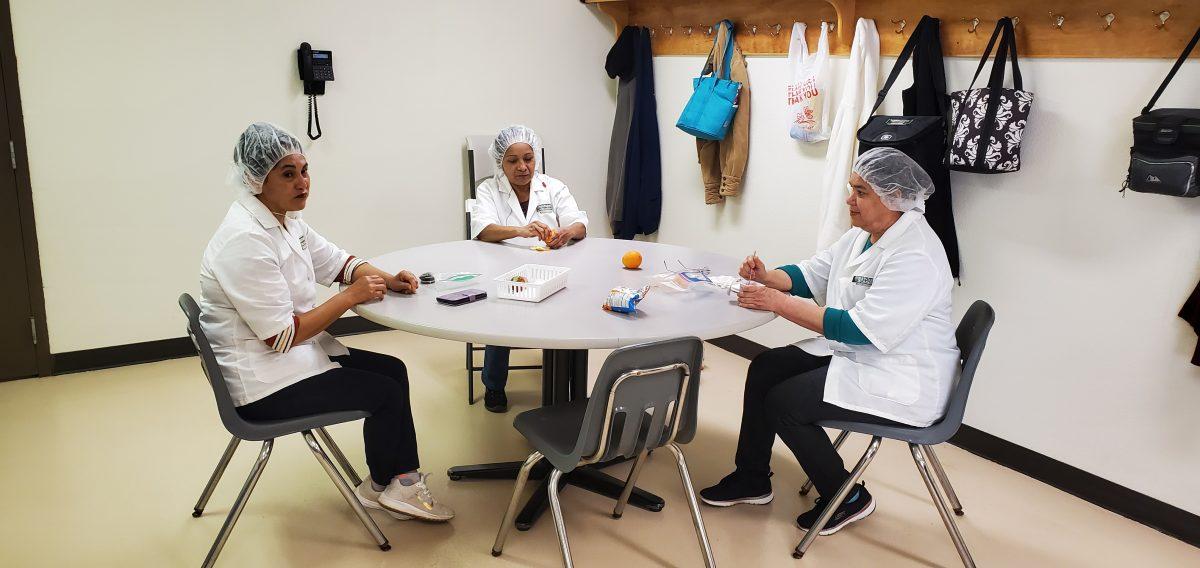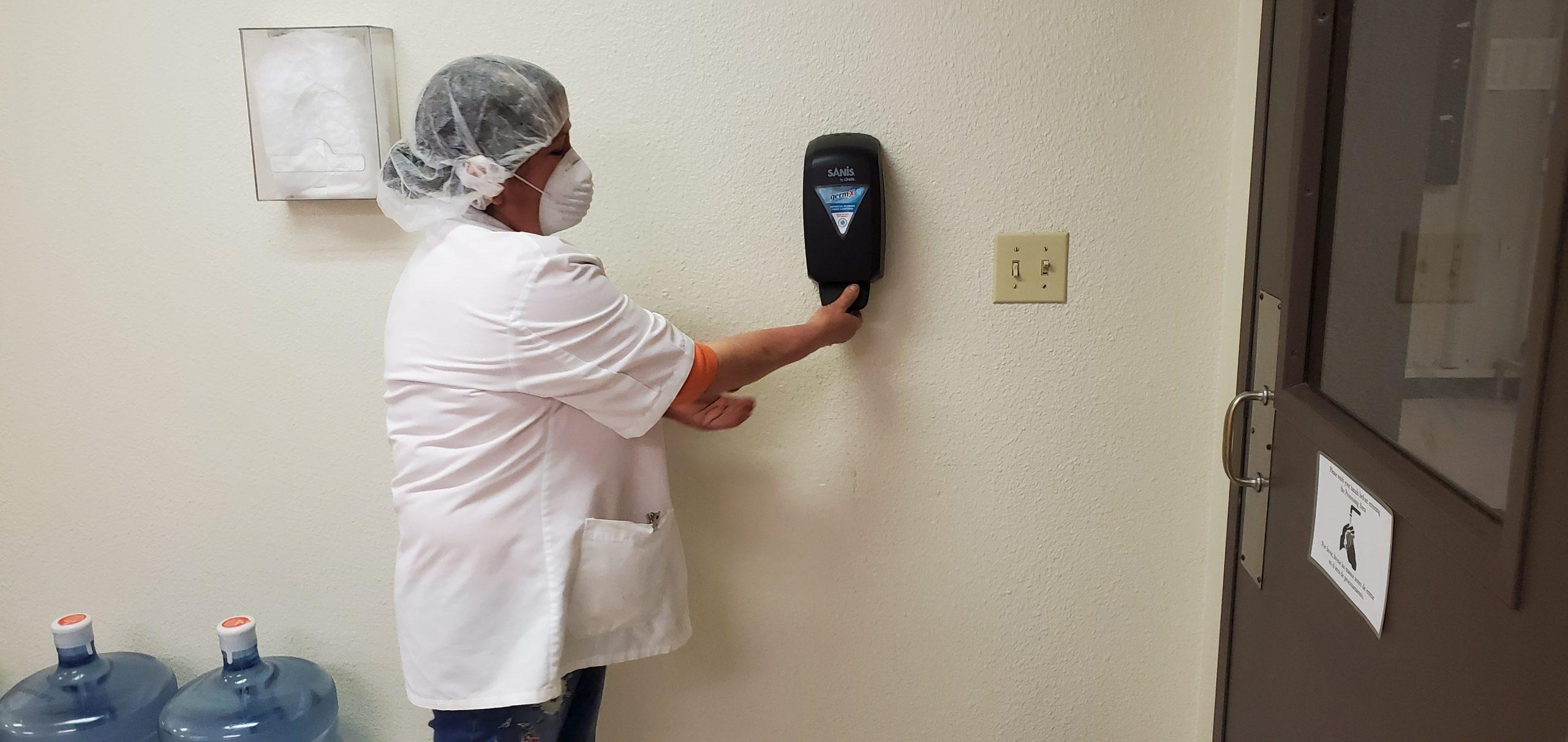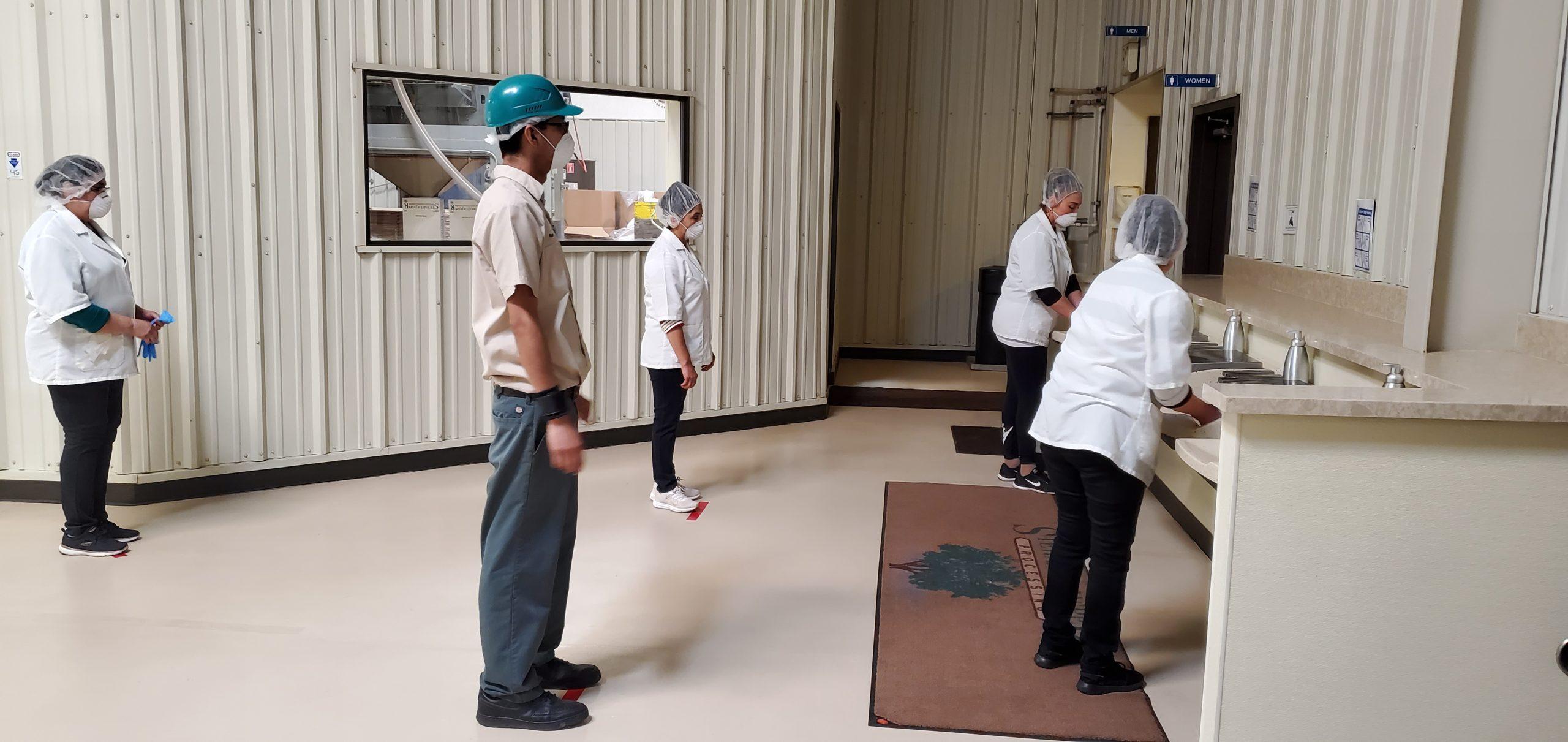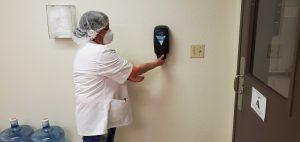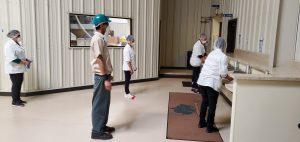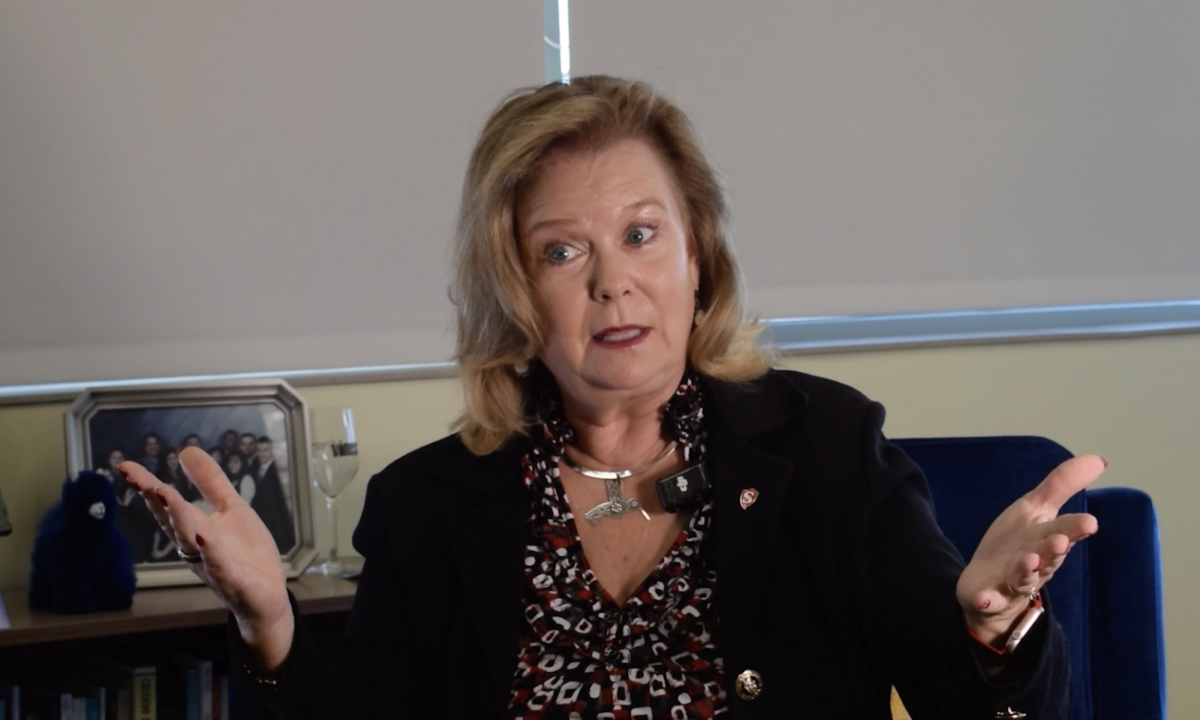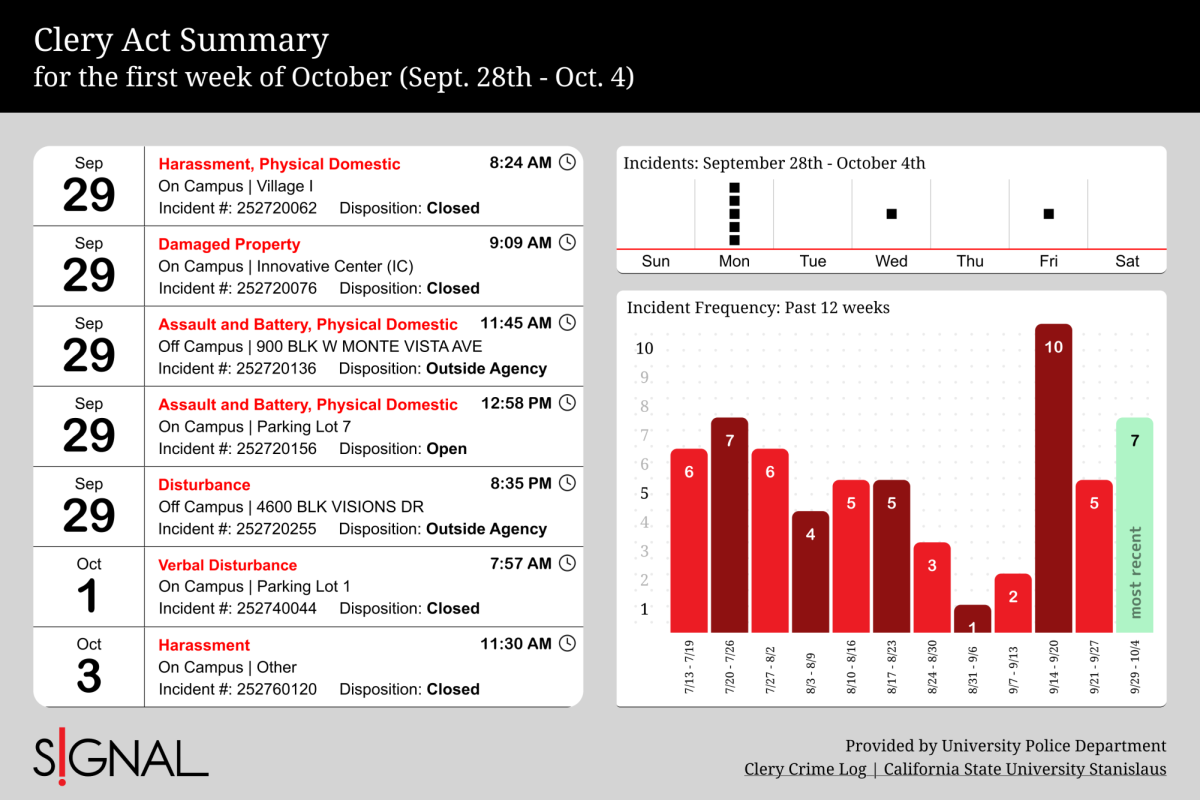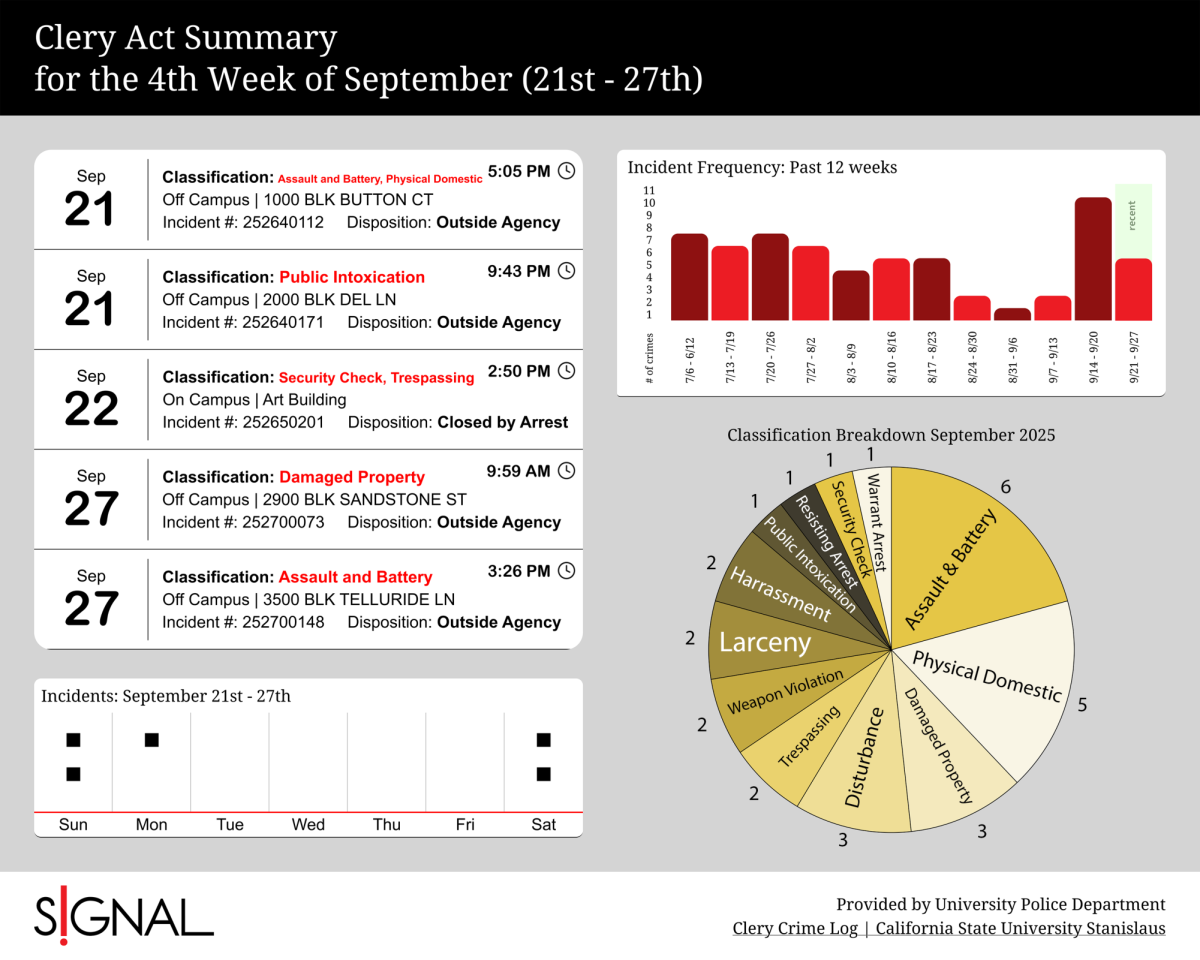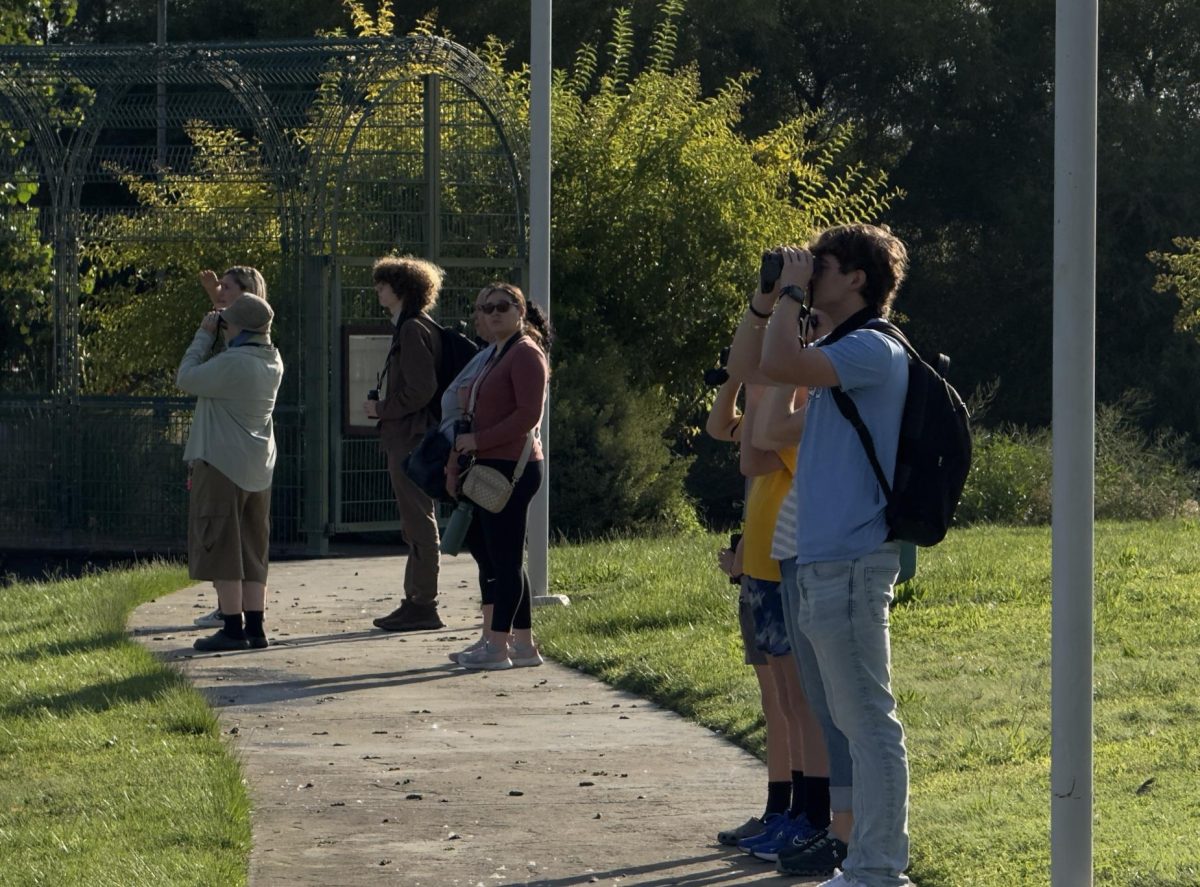With the United States having observed the stay-at-home orders because of COVID-19 for about 50 days now, it’s safe to say that every business at every level has been affected to some extent. An essential part of our economy, the agriculture industry, while still able to operate, is no different.
According to an article from agriculture website beef.com, “commodity markets have tanked… There is the worry that packing plants will shut down. And producers, who were already hanging on by a thread due to several years of low profitability and losses, may now go out of business for good.”
When one thinks of the industry, the big names are often what come to mind, but behind the metaphorical curtain of these operations, big or small, are families and other everyday people contributing to the larger narrative.
Moonshine Dairy, a producer on the West Side whose milk is used to stock the shelves at Safeway, is run by Rich and Jacquie Dyt. A family of six with four daughters, the Dyts have managed to find somewhat of a bright spot among the anxieties of this new reality. “With schools being closed, the girls have been helping half days,” says Jacquie Dyt.
In talking to several businesses within the agriculture industry, Stewart & Jasper Orchards, Moonshine Dairy, Foster Farms, and E&J Gallo Winery, personal anecdotes like this one kept popping up. It became obvious that one thing has continued to serve as a motivator, even in the most difficult moments: the people.
Mentality in the Midst of the Pandemic
Amidst an often overwhelming feeling instability, those within this industry have been, for the most part, trying to stay positive. Jim Jasper of the West Side’s Stewart & Jasper Orchards has found his bright spot among what is familiar.
“I’m very positive. I love coming into work,” Jasper shared. “What a pleasure it is to be able to get out of the house. Just the opportunity to be able to do that is tremendous.”
While a lot of the power behind the operation is dedicated towards the packing and shipping of the almonds, most of the employees in the home office have opted to come into work.
“When you’re used to working all your life and [are] being told to be productive, and then you’re told to stay home, it’s a hard thing to deal with,” said Jasper.
Moonshine Dairy’s Jacquie Dyt also spoke to the mental toll of this drastic change in lifestyle. “My anxiety level has increased. You know where the milk prices are going. They’ve dropped about 35%. I’m thankful everyday the milk truck comes,” she said.
One of the things that has helped with that anxiety and served as a welcome distraction is not only the preservation of a routine for both her family and herself, but also the fact that they have some room to roam. They live on their dairy out in the country, so roaming about the property and in the surrounding area has helped alleviate some of the tension.
Ira Brill, vice president of communications for Foster Farms, recognizes the trend of finding a distraction or escape of sorts. While the pandemic and projections of where it’s headed are constantly flooding the country’s psyche, Ira mentioned how easy it is to forget until it hits close to home.
“I think where it’s difficult is when you learn of a friend or someone that you work with at another business who has been diagnosed positive,” Ira shared. A welcome reminder.
Responsibility – To Their Employees, Communities, and the Masses
Despite the fact that these are all businesses with the shared goal of being able to survive the impact COVID-19 has had on the economy, each one communicated another similar sentiment. It is just as, if not more, important to these companies that their employees, communities, and the like are able to maintain their health.
Jasper feels that it is “absolutely essential that we provide an environment where everyone feels as safe as if they were at home.” Moonshine Dairy, Foster Farms, and Gallo all shared the same mindset and their plans as to how they would rise to the challenge.
For the Dyts, this is achieved through open communication with their employees, sharing information as they receive it, and taking advantage of the space that comes with their business.
“Being in ag, we are very fortunate to be able to be outside and where people don’t have to be close together. The social distancing was easy to comply with,” Dyt shares.
Foster Farms and Gallo both shared similar feelings, stating that being proactive is the key to maintaining the safety of their work environments. This may be achieved both in and outside of the operation, taking advantage of any information they can get their hands on.
“We are working closely with our environmental health and safety teams to ensure we are providing a safe workplace for our valued team members who are unable to work remotely,” a Gallo spokesperson said.
Brill expressed satisfaction with how things have been going so far, sharing that “in [the] California plants, we have not had any positive [cases of COVID-19].”
Among the measures to ensure the safety of employees, these businesses are also working to ensure financial stability. An article written by Miriam Jordan and Caitlin Dickerson for The New York Times looks into the spread of coronavirus in meat plants, pointing out that among the narrative that is being shaped in regards to the pandemic is an added pressure from the federal government to provide food for the citizens of this country.
“The federal government has deemed food-industry workers essential, but some employees say they… feel pressure to come to work, and others cannot afford to remain at home past any paid sick leave.”
All of the businesses interviewed mentioned some sort of supplemental pay that is available to their workers should the need arise. Among the options was the standard three-days-a-year sick leave policy, up to two weeks of 80 hours paid sick leave if tested positive via the Family First Coronavirus Response Act, or individual offerings exclusive to each business.
Dyt shared that “once this is over, the owners [within her 400+ business co-operative] have been talking about a bonus to tell them that we appreciate them for working in this time and environment.”
According to Jasper, via the CARES Act, employees could have access to as much as an additional 12 days with full pay and then 12 weeks at 60% of the employee’s wages. This helps to ensure that some of the burden is taken off their employees and, should they be experiencing symptoms or simply need to be there for a loved one, there’s not an added pressure to come into work.
“If there’s any reason for them not to be here, even if they’re not sick, but someone in their family is, people are financially okay and I’m happy for that,” Jasper explained.
Just as important as each company’s employees are the communities in which the employees and customers live.
Stewart & Jasper is donating 2,000 pounds worth of almonds to first responders and medical personnel in the areas surrounding the business, starting on the West Side.
“[It’s] where a lot of our growers are,” Jasper says. “When we’re really busy, there’s about 175 people working here. That’s 175 families that are existing because they work here. 200 farmers within 50 miles of here grow for us… [These people] are working so hard on our behalf. If they use them and like them, we’ll continue to provide them.”
According to Brill, Foster Farms has also made sure to give back during this trying time and has donated the equivalent of 2 million servings of poultry products to food banks up and down the West Coast.
Gallo decided to take on an unexpected challenge, collaborating with Aemetis, an advanced renewable fuel and biochemicals company, to produce hand sanitizer.
Chief marketing officer Stephanie Gallo spoke about this major production shift. “We appreciate Aemetis’ partnership, and Gallo is honored to play a small role in helping to fill an unmet need in our communities,” said Gallo.
Aside from providing hand sanitizer to Gallo employees, the company is also donating this product to medical and first responders from Stanislaus, Merced, Fresno, Napa, Sonoma, San Luis Obispo and Monterey counties.
While the Dyts are not able to distribute their milk directly from their facilities (it’s against the law), they are looking to make individual donations to the surrounding food banks as well as their local parish, St. Joachim’s in Newman.
The Business Side of Things
The New York Times shared a piece highlighting the increasingly common occurrence of waste in agriculture.
“In Wisconsin and Ohio, farmers are dumping thousands of gallons of fresh milk into lagoons and manure pits… And in South Florida, a region that supplies much of the Eastern half of the United States with produce, tractors are crisscrossing bean and cabbage fields, plowing perfectly ripe vegetables back into the soil,” it reads.
While this is the new reality for producers in different parts of the country, fortunately, none of the four businesses interviewed mentioned any waste. However, there were different aspects of their operations that each business found worrisome.
Foster Farms cited their struggle to get much-needed health equipment, masks in particular. Although they have received them now, Brill did say that it wasn’t soon enough. Though this is due to the increase in demand, it still was worrisome.
For Stewart & Jasper, there is a bit of worry in regards to the follow through of their contracts. “The biggest challenge in the almond industry… Almonds have become much cheaper than they were 6 months ago because of the fear. It’s going to be challenging to get them into the market and get paid for them,” Jasper shares.
Jasper did make sure to note though that those in the almond business are fortunate due to the longevity of their product.
Perishability is an area that hit close to home for Moonshine Dairy. “It’s frustrating to know that you’re producing a product that people want and need and there are loads being wasted. To me,” Dyt says, “that’s kind of gut-wrenching.”
Gut-wrenching, but understandable. Milk is a highly perishable product due to the bacteria that exists among the other vitamins and minerals. How it’s processed determines how long it can last.
Another area of concern for Dyt and those in animal agriculture as a whole, is the well-being of the animals.
“You feel very vulnerable because you can’t just shut down and the cows have to get milked. I feel like any animal ag is vulnerable as far as having to stay open for the health and well-being of the animals. You have to keep operating,” she shares.
Adjustments have been made across the board to ensure that employees are able to continue to work without being in a dangerous environment. Temperature screenings, social distancing, sanitizing of all communal areas or surfaces, and work-from-home options are all being made a part of these operations’ “new normal.”
Aside from this, a theme of “innovation meets simplification” has come into play for both Foster Farms and Stewart & Jasper.
Stewart & Jasper is always looking to be innovative and expand their reach, explained Jasper, whether the virus is here or not. The company’s stores in Newman, Patterson, and Modesto have all adjusted their hours, installed plexiglass barriers to ensure the safety of their employees, and are now offering in-store pick up as well as delivery, either through their site or through Amazon.
“For the kids, since they’re staying at home, we have boxes with games and color crayons. We’re using social media more… We’re trying to think out of the box to get people interested in our products,” says Jasper.
Brill shares that Foster Farms is focused on streamlining the products they offer in order to keep the shelves stocked and the people fed. In order to explain his reasoning, he looks to one of the products that has seen a skyrocketing in demand: toilet paper. He explains that prior to the pandemic, there were about 20 different varieties. Now, all you really see is white toilet paper. Simplification has aided producers in being able to meet consumers’ needs.
Looking to the Future
Looking forward, while there definitely is fear, all of these businesses remain hopeful.
Jasper ties his hope and optimism to his employees. “We’re very efficient and well-ran. We have a 73 year history and have gone through tough times. I’d like to think that Stewart & Jasper has the management team and the people– it’s all about the people— that can persevere,” he says earnestly. “I feel very confident that we’re going to come out of this fine.”
Both Brill and Dyt looked at the big picture, expressing concern for communities and uncertainty as to how things would look once things did calm down and the non-essential businesses were able to open again.
Dyt chose to look forward with optimism. “If our business does well, it’s an indication of other businesses doing well. It’s the other side of that slogan, ‘We’re all in this together’. In health, well-being, livelihood, and our country.”

